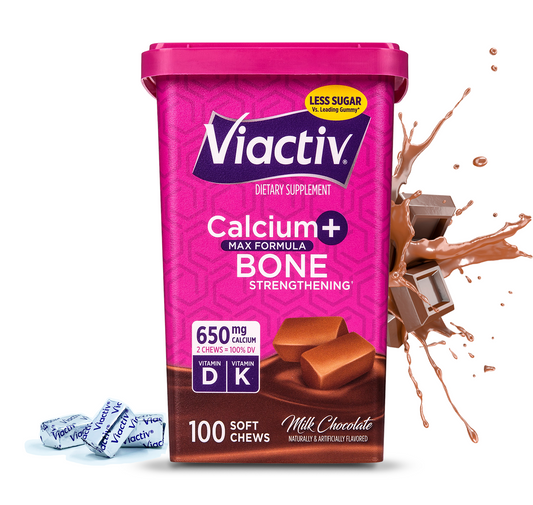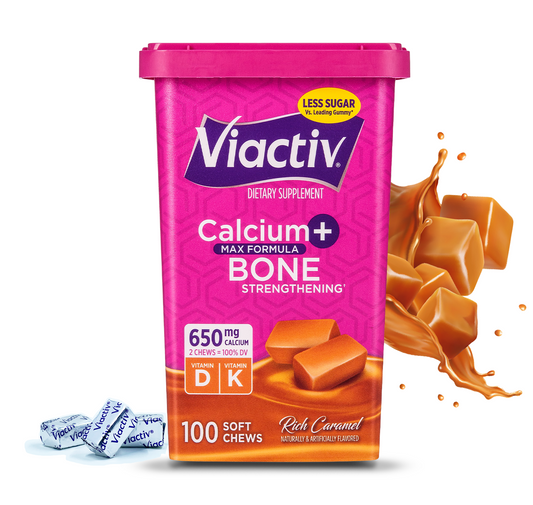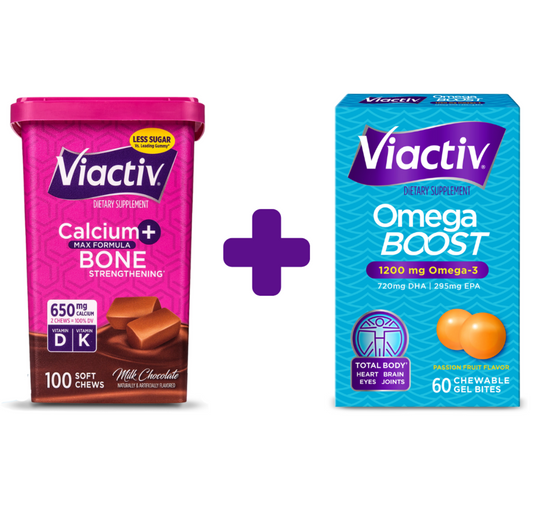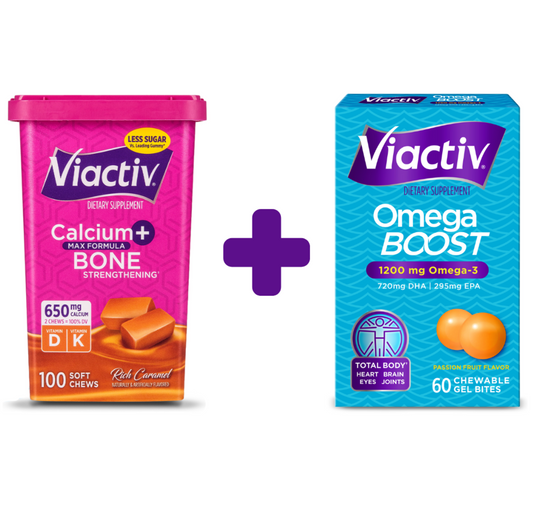Bone Health Collection
-
Chocolate Calcium Chews
Milk ChocolateRegular price $16.99Regular priceUnit price per -
Caramel Chewable Calcium
CaramelRegular price $16.99Regular priceUnit price per -
Calcium + Omega-3 (Trial Bundle)
Milk Chocolate + Citrus PassionRegular price $48.49Regular priceUnit price per$56.98Sale price $48.49Sale -
Calcium + Omega-3 (Trial Bundle)
Caramel + Citrus PassionRegular price $48.49Regular priceUnit price per$56.98Sale price $48.49Sale
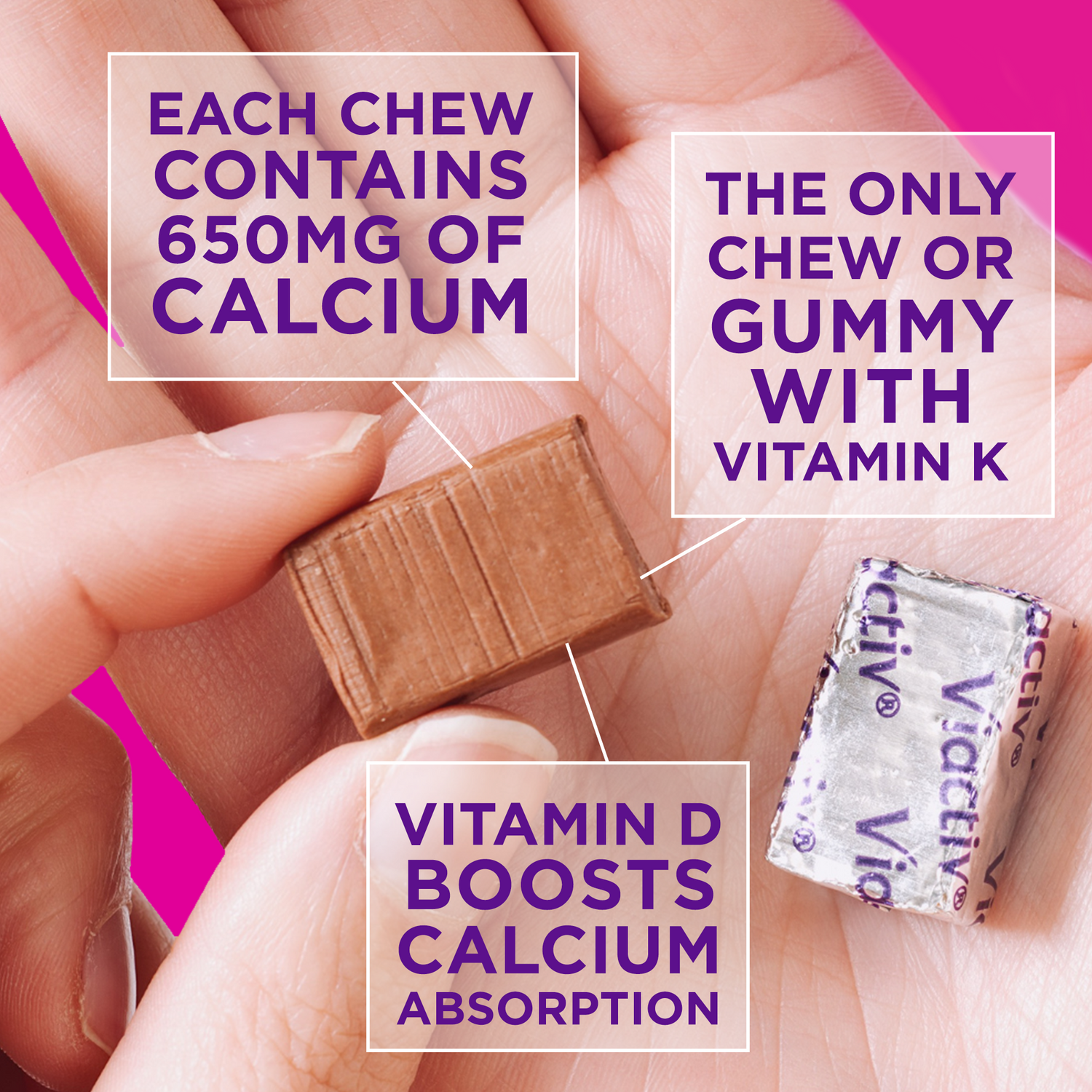
50% of Women are at Risk of Osteoporosis
It doesn’t have to be you. Adequate calcium and vitamin D as part of a healthy diet along with physical activity may reduce the risk of osteoporosis in later life.† Learn more about osteoporosis and bone health here.
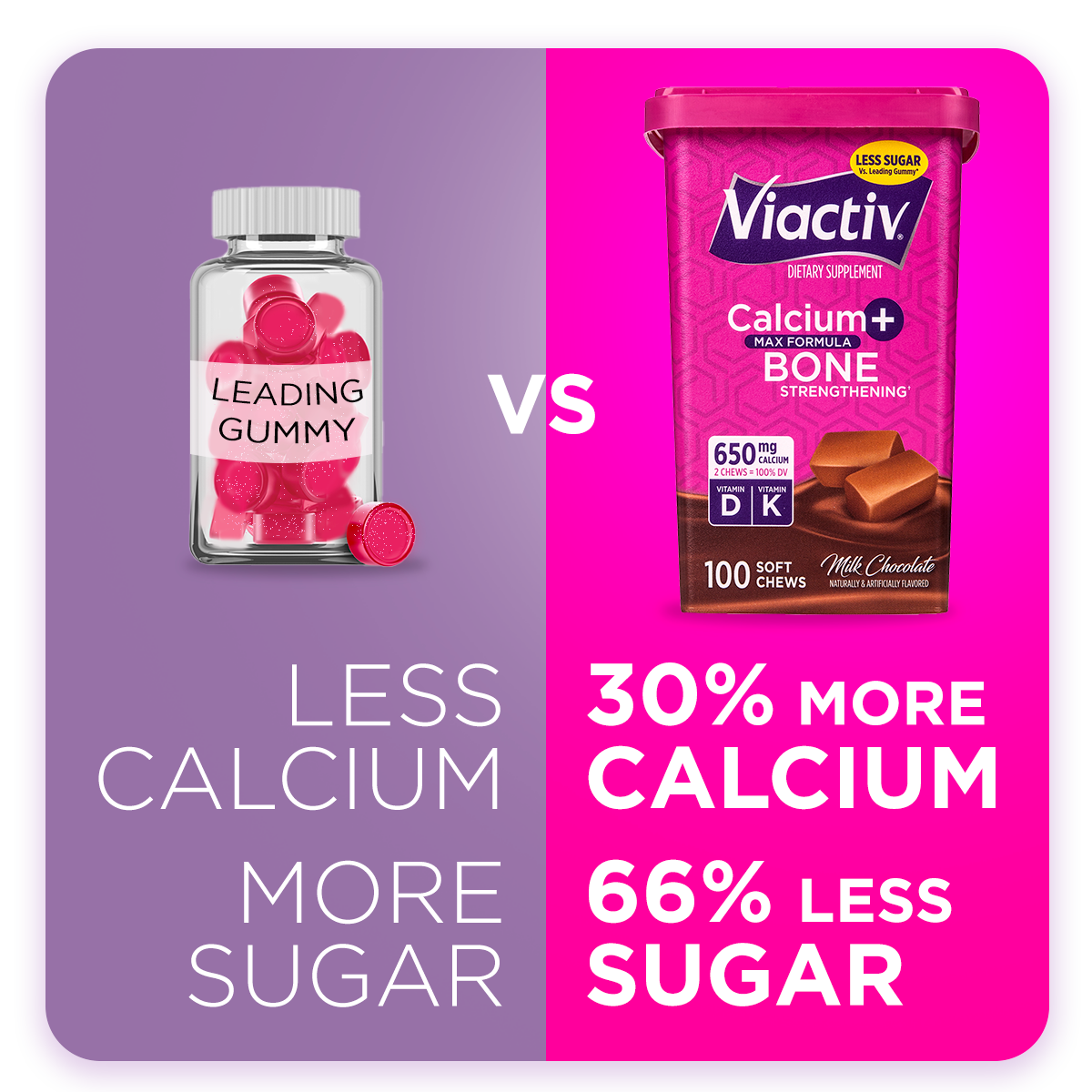
Bone Strengthening Supplements You'll Crave
Delicious milk chocolate and caramel flavored soft chews are tasty like a calcium gummy – but only have 1-2 grams of sugar per 1-piece serving. That’s 66% less sugar and 30% more calcium than the leading calcium gummy.

Bone Loss Begins in Your 30s
Up to 90% of a women’s bone mass is achieved by the age of 18. After your 30s, your body produces less new bone, and you experience more bone loss. But you can slow down bone loss and reduce the risk of osteoporosis with proper nutrition and exercise.†
Blog Posts
FAQS
Why is calcium important for bones?
Calcium is a key mineral to get in your diet or through a bone health supplement. Aside from building strong bones your body needs calcium to handle other important tasks: to move muscles, send messages through the nervous system, help release hormones and enzymes and circulate blood.
What is a good indicator of bone health?
More than 99% of calcium is stored in your bones and teeth. Your health care provider may order test(s) to check the density of your bones. A DEXA scan is the most common way to measure bone density. A calcium blood test, a vitamin D test, and/or tests for certain hormones may also help confirm bone health.
Why should I take calcium vitamins for strong bones and joints?
Calcium is essential for building and maintaining healthy bones throughout life. 99% of calcium in the body can be found in bones and combines with other minerals to form hard crystals, giving bones strength and structure. In addition, calcium supports bones by helping muscles function optimally which, in turn, support bone strength and mobility. Viactiv calcium chews are tasty and healthy vitamins for bone health.
How can you reduce the risk of osteoporosis?
Optimizing peak bone mass during adolescence and early adulthood contributes to bone strengthening and has been shown to build and maintain good bone health. Adequate amounts of calcium and vitamin D as part of a healthy diet - along with physical activity - may reduce the risk of osteoporosis in later life.†
Can only women be at risk for osteoporosis?
The risk of osteoporosis is less common in men than it is in women. Decreases in bone mass occurs at a slower rate for men until ages 65–70, when the rate is the same for men and women. Factors linked to an increased risk of osteoporosis in men include a family history of osteoporosis, regular use of certain types of medication, and lifestyle factors, such as smoking, excessive alcohol use, low calcium intake, inadequate exercise, obesity, and vitamin D deficiency.


